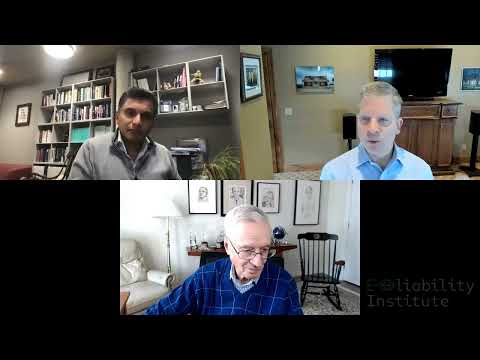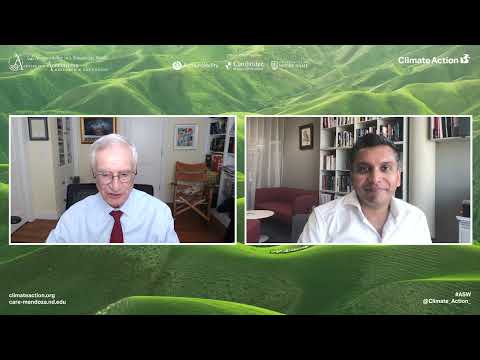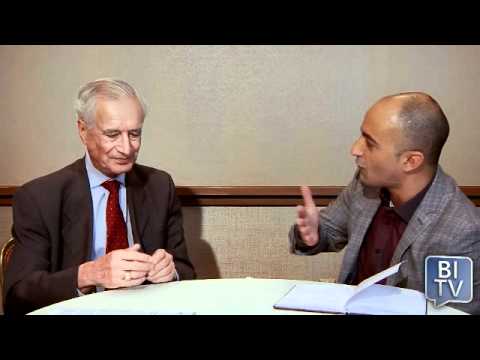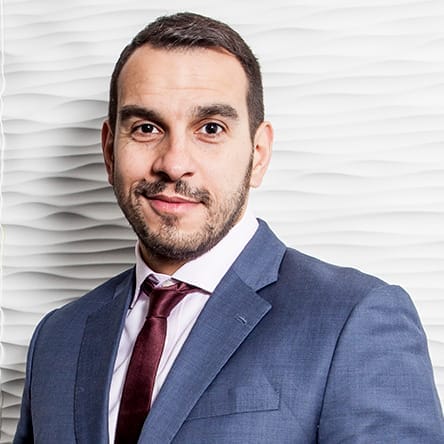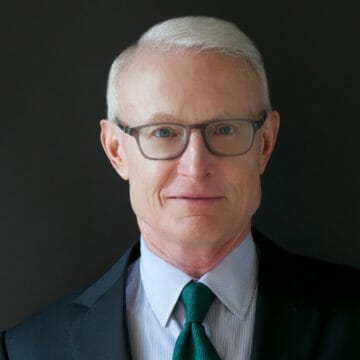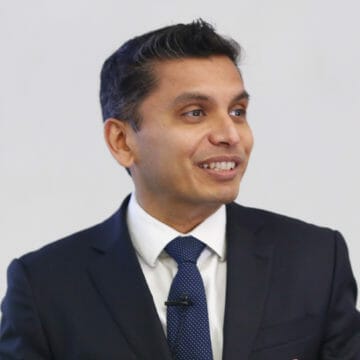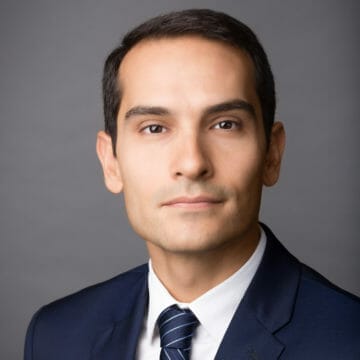Videos
Learn More About Robert S. Kaplan
Can an organization implement a business strategy that offers strong financial returns while also serving society? Corporate advisor and former Harvard Business School Professor Robert S. Kaplan continues to show organizations it’s not only possible but profitable – and critical to the long-term sustainability of any business.
Kaplan is one of the world’s foremost authorities on performance and risk management, strategy execution, and value-based systems – particularly as they relate to the health care industry. More recently, he has been working with global agribusiness firms on sustainable and inclusive growth strategies, showing leaders how to drive profits while creating a responsible sourcing ecosystem that benefits all stakeholders. The results are proof positive that corporations can continue to seek profitable opportunities while increasing the incomes and employment of those previously left behind by global growth. Inclusive growth shows how companies can profit, ethically and with integrity, by connecting local farmers and suppliers to global supply chains for their products, services, and talent.
“The beauty of capitalism is value creation,” says Kaplan. “We can’t compromise growth. It is the engine for increasing incomes and wealth. But companies must learn how to distribute the benefits from growth more broadly and more equitably so that everybody wins.”
Widely known as co-originator of the Balanced Scorecard – which revolutionized conventional thinking about performance metrics and still remains among the most widely used strategic management tools in the world – Kaplan backs his pragmatic frameworks with research, case studies and decades of experience, helping companies around the world strategically measure and drive performance. His inclusive framework has become even more valuable during the pandemic now that companies are examining how to make their supply chains more resilient and inclusive, a key component for future business success.
A Value-based Model for Fixing America’s Health Care System
In addition to advising corporate leaders on strategy and execution, Kaplan has been working with world-renowned business strategist Michael E. Porter on solutions for fixing America’s broken health care system. Together, they have been conducting research and building strategic frameworks around a measurable, value-based model for treating patients.
“The U.S. spends about 50% more per capita on health care than any other country in the world and experiences among the worst outcomes,” says Kaplan. “Health care is a four trillion dollars a year industry (18% of US GDP) that doesn’t measure its outcomes or what its treatments cost. Progress can’t be made when outcomes and costs are unknown.”
As a solution, Kaplan has developed cost-saving measurement tools for assessing health care performance based on value. The approach enables new payment systems, “bundled reimbursements” that reward improved patient outcomes achieved at lower total cost. The pandemic has highlighted the urgent need for decision makers to adopt such a model.
Kaplan’s Strategies for Measuring and Managing Risk
Kaplan also teaches organizations risk management practices that enable, not inhibit, innovation and revenue growth strategies. “Strategy risks are quite different from preventable risks because they are not inherently undesirable,” wrote Kaplan in a 2012 Harvard Business Review article. “A strategy with high expected returns generally requires the company to take on significant risks, and managing those risks is a key driver in capturing the potential gains.” His well-researched, time-tested frameworks help companies identify, measure and mitigate risk in all areas of an organization.
In a 2020 Harvard Business Review article, “The Risks You Can’t Foresee,” Kaplan and his co-authors explain how to detect the emergence of a novel risk and how to mobilize resources to mitigate its impact.
Kaplan’s meticulously designed strategy execution and measurement tools continue to help organizations increase revenues and manage risk while protecting the interests of supply chains, society and the environment.
Robert S. Kaplan is Senior Fellow and Marvin Bower Professor of Leadership Development, Emeritus at the Harvard Business School (HBS). He joined the HBS faculty in 1984 after spending 16 years at the Tepper Business School, Carnegie-Mellon University, where he served as the dean from 1977 to 1983. With graduate degrees in electrical engineering and operations research, Kaplan co-developed both the Balanced Scorecard and activity-based costing. Named one of Financial Times’ “Top 25 Business Thinkers,” his research, executive education teaching and consulting focus on linking cost and performance management systems to strategy implementation. He has authored or co-authored 14 books and more than 150 papers.
Elected to the Accounting Hall of Fame in 2006, Kaplan received the Lifetime Contribution Award for Distinguished Contributions to Advancing the Management Accounting Profession from the Institute of Management Accountants (IMA) in 2008 and the Lifetime Contribution Award from the Management Accounting Section of the American Accounting Association (AAA) in 2006. He also received the Outstanding Accounting Educator Award in 1988 from the AAA, the 1994 CIMA Award from the Chartered Institute of Management Accountants (UK) for “Outstanding Contributions to the Accountancy Profession,” and the 2001 Distinguished Service Award from IMA for contributions to the practice and academic community. He received a bachelor’s and master’s degree in Electrical Engineering from M.I.T., a PhD. in Operations Research from Cornell University and honorary doctorates from several distinguished international universities.
Robert S. Kaplan is available to advise your organization via virtual and in-person consulting meetings, interactive workshops and customized keynotes through the exclusive representation of Stern Speakers & Advisors, a division of Stern Strategy Group®.
Inclusive Strategies That Promote Long-term Growth While Serving Society
The pandemic has dramatically highlighted how much an organization’s long-term growth is linked to the survival of its supply chains. For too long, however, firms did not measure or turned a blind eye to the ways people and natural resources were being negatively affected along the chain. Such business practices are no longer tenable as customers are increasingly holding companies accountable for practices that may harm people and the planet. In this presentation, Harvard Business School Professor Robert Kaplan outlines inclusive growth strategies that drive revenues while creating an ecosystem that benefits all stakeholders. He shows how a co-created ecosystem made up of everyone along the supply chain builds relationships and trust across organizational and sectoral boundaries and allows everyone to participate in the win. To measure results, Kaplan’s strategy map and Scorecard provide a mechanism for ongoing accountability and governance within the new ecosystem. Participants will come away with a new understanding of how to drive revenues while protecting the valued people and resources that sustain their business.
A Value-Based Model for Lowering Health Care Costs
U.S. health care costs are nearly 20% of GDP and continue to rise, while outcomes in care are among the worst in the world. Robert Kaplan’s value-based framework for measuring the performance of health care systems offers a solution. Drawing from his current initiative with Harvard Business School colleague Michael Porter, Kaplan explains how helping clinicians, managers and payers focus on value-based health care delivery will drive better outcomes at much lower costs. Leveraging findings from his ongoing work with over two dozen leading health care institutions around the world, Kaplan shows how valid cost measurement builds a foundation for transformational improvements in health care delivery, including clinician-focused process improvements, enhanced capacity utilization of personnel, equipment and facilities, and innovative bundled payment reimbursements that reward high-quality and efficient providers. Kaplan offers health care leaders and policy makers a practical, actionable framework for revitalizing a system that’s been sick for far too long.
Measuring, Managing and Mitigating Risk
As the pandemic and 2008 financial crisis revealed, risk management processes that are siloed, fragmented and delegated can leave organizations vulnerable to huge, unforeseen losses. Much of this is due to individual and organizational biases that inhibit candid discussions about the possible risks of enterprise strategies. Harvard Business School Professor Robert Kaplan’s risk management work is grounded in measurement systems and well-researched strategies that help companies identify, measure and mitigate risk in all areas of an organization. In this presentation, he teaches managers how to identify different types of risk, how to achieve an appropriate balance between innovation and risk, and how to make cost-effective investments that protect the company from the consequences of uncertain and unexpected events. While acknowledging the importance of existing compliance and internal controls, Kaplan urges managers to focus their attention on the risks inherently created by their strategies, as well as the risks that arise from external events that are out of their control.
Measuring and Managing the Profitability of Products and Customers
Managers are often surprised to learn that the bulk of their profits comes from a small percentage of customers. Harvard Business School Professor Emeritus Robert Kaplan, co-developer of activity-based costing (ABC), teaches participants how to use this powerful costing framework to understand the economics of their products, services and customers. Through time-driven ABC, companies have the ability to assign virtually all organizational spending to individual products and customers, enabling them to see for the first time where they are truly making and losing money. With this fact-based knowledge and analysis, Kaplan discusses the multiple ways companies can transform losses into profits quickly – leading to dramatic improvements within 6-12 months – without “firing customers.”
Balanced Scorecard + Visionary Leadership = Successful Strategy Execution
Organizations may formulate an excellent strategy, but all too often it fades from memory as employees in different departments tackle day-to-day operations. Robert Kaplan shows participants how to make strategy execution continuous by integrating processes and functions – such as finance, HR, IT, operations and innovation – into a holistic strategy management system. Co-creator of the Balanced Scorecard, the world’s leading management tool for strategy execution, Kaplan shares success stories and discusses the one common element that is necessary for implementing strategy: exceptional visionary leadership. Without it, he says, even the most comprehensive management system cannot deliver breakthrough performance.

Management Accounting: Information for Decision-Making and Strategy Execution
(Prentice Hall, March 2011)

The Execution Premium: Linking Strategy to Operations for Competitive Advantage
(Harvard Business School Press, July 2008)

Time-Driven Activity-Based Costing: A Simpler and More Powerful Path to Higher Profits
(Harvard Business School Press, April 2007)

Alignment: Using the Balanced Scorecard to Create Corporate Synergies
(Harvard Business School Press, April 2006)

Strategy Maps: Converting Intangible Assets into Tangible Outcomes
(Harvard Business School Press, February 2004)

The Strategy-Focused Organization: How Balanced Scorecard Companies Thrive in the New Business Environment
(Harvard Business School Press, September 2000)

Cost & Effect: Using Integrated Cost Systems to Drive Profitability and Performance
(Harvard Business School Press, December 1997)

The Balanced Scorecard: Translating Strategy into Action
(Harvard Business School Press, September 1996)

Relevance Lost: The Rise and Fall of Management Accounting
(Harvard Business School Press, October 1987)
“‘Accounting for Climate Change’ could not be more timely given the urgency of the climate crisis and the imperative for companies to reduce greenhouse gas emissions. The judges praised the article’s rigorous and practical approach to improving ESG reporting.”
“I have been following Robert Kaplan for the last 15 years. Never have I heard him so energized before. He is among the best presenters I have heard. He has developed the BSC to a holistic framework for Enterprise Performance Management where strategy and execution are the core components. He is a unique story teller that combines research with world leading practical examples. He keeps the audience fully engaged throughout the day.”


